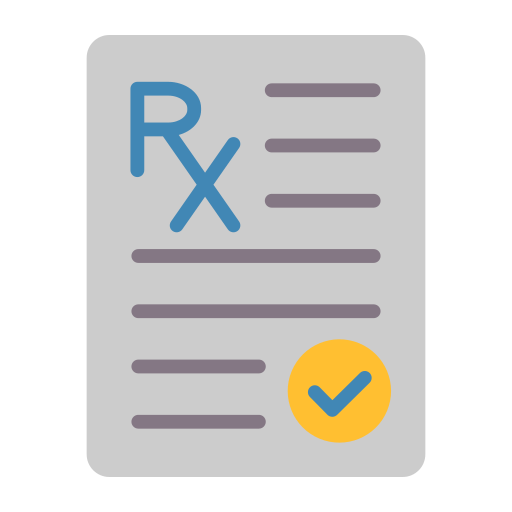How to Buy Ambien Online with Legal U.S. Prescription Approval
U.S. law classifies Ambien (Zolpidem) as a controlled substance, requiring strict oversight for prescription and dispensing even online. Under recent federal policy updates, DEA-registered practitioners can prescribe Schedule IV medications like Ambien via telehealth without an in-person visit, provided they comply with DEA and HHS telemedicine rules. This means you can legally get Ambien online only if the prescribing provider is certified under these new telehealth flexibilities.
The FDA strongly advises consumers to use only licensed U.S. pharmacies when buying prescription medicines online. Legitimate pharmacies will require a valid prescription, a licensed pharmacist review, and proper packaging and expiration dating. Websites that do not follow these protocols or offer Ambien without a prescription are likely illegal, may sell counterfeit products, and bypass critical safety safeguards.
Ambien's Mode of Action
Ambien, a sleep-inducing medication containing Zolpidem, falls within the category of imidazopyridines. It exerts a range of effects, encompassing muscle relaxation, anti-anxiety properties, sedation, hypnotic influence, and anticonvulsant activity.
Zolpidem engages with benzodiazepine receptors, leading to a reduction in the time required to initiate sleep, fewer nighttime awakenings, enhanced sleep quality, and prolonged overall sleep duration.
Upon oral consumption of Ambien, its peak concentration is achieved within a span of thirty minutes to three hours. Its bioavailability stands at approximately 70%, with a binding affinity to proteins of 92%. Metabolism of Zolpidem transpires within liver cells. Approximately 60% of the substance is excreted via urine, while about 40% is eliminated through the intestinal route.
Indications for the Use of Ambien
Ambien (Zolpidem), available without prescription, is designed for the management of transient and situational insomnia. This includes challenges related to initiating sleep, early awakenings, and nocturnal disturbances.
Contraindications for Ambien Drug
The usage of Ambien, a generic zolpidem-based sleeping aid, is cautioned against in specific scenarios. Below is a list of contraindications that apply to the utilization of generic Ambien as a hypnotic:
- Severe respiratory insufficiency
- Frequent sleep apnea syndrome
- Pregnancy
- Severe liver dysfunction
- Individuals below the age of eighteen
- Heightened sensitivity to any component of the drug
- Congenital galactosemia
- Malabsorption syndrome
Generic Ambien should be approached with care in cases of pseudo-paralytic myasthenia gravis, chronic alcoholism, and substance addiction.
Guidelines for Usage and Dosage of Ambien
The utilization of Ambien (Zolpidem) must strictly adhere to medical directives, with tablets being orally consumed at the minimum effective dose. Typically, the recommended daily dosage is 10 mg, taken just prior to bedtime. For elderly individuals, a reduction in dosage to 5 mg may be prudent.
The duration of hypnotic treatment can vary from several days to a month, all while being overseen by a healthcare professional. During instances of short-term therapy, a gradual and cautious reduction in medication is advised.
Understanding Ambien Overdose
An overdose of Ambien (Zolpidem) can lead to a potentially life-threatening situation. It results in central nervous system depression within the patient, causing a range of effects from confusion to coma. Additionally, lowered blood pressure and significant respiratory depression are notable symptoms.
Ambien's Potential Side Effects
The utilization of the economical hypnotic Ambien can potentially lead to the following side effects:
- Drowsiness
- A sensation akin to intoxication
- Persistent headache
- Amnesia
- Dizziness
- Aggravation of insomnia
- Hallucinations
- Restlessness
- Nightmares
- Impaired cognition or confusion
- Irritability and heightened aggression
- Sleepwalking tendencies
- Potential for medication dependency
Furthermore, during the course of using this sleep aid, the following effects might emerge:
- Decreased libido
- Muscle weakness
- Disturbed gait
- Occasional double vision
- Digestive disturbances like diarrhea, nausea, and vomiting
- Abdominal pain
- Elevated liver enzyme levels
- Fatigue
- Skin reactions including rash, itching, and urticaria (hives)
- Excessive sweating
- Episodes of angioedema (swelling beneath the skin)
It's important to note that this list encompasses a range of possible reactions that individuals might experience while taking Ambien. If any of these symptoms manifest, it's advisable to consult a healthcare professional.
Specific Guidelines
Prior to initiating treatment with a hypnotic, it is imperative that the underlying cause of the sleep disturbances is ascertained by a medical professional. Ambien (Zolpidem), the medication in question, should be avoided in patients grappling with mental health disorders.
The use of affordable Ambien can potentially lead to the emergence of paradoxical reactions. These may include heightened insomnia accompanied by psychotic symptoms, possible occurrence of nightmares, motor restlessness, anxiety, delirium, and hallucinations. Additionally, euphoria, confusion, disinhibition, increased suggestibility, and aggressiveness may manifest.
Furthermore, it's important to acknowledge that a withdrawal phenomenon might transpire within a few days following the discontinuation of Ambien therapy.
Frequently Asked Questions
What’s the Legal Way to Purchase Ambien Online in the U.S.?
+
The legal way to buy Ambien online is through a licensed telehealth provider who is authorized to prescribe controlled substances. Under federal law, including the Ryan Haight Act, Ambien (Zolpidem) requires a valid prescription, which can only be issued after a proper medical evaluation either in-person or via a DEA-compliant telemedicine platform.
How Can I Get Ambien Online Through a Licensed Provider?
+
You can obtain Ambien online by completing a consultation with a U.S.-licensed healthcare provider through a secure telehealth platform. If the provider determines that Ambien is medically appropriate, they will issue a legal prescription, which is then sent to a certified U.S. pharmacy for home delivery.
Can I Order Ambien Online with a U.S.-Approved Prescription?
+
Yes, as long as the prescription is issued by a licensed healthcare provider in accordance with U.S. law. The provider must be authorized to prescribe controlled substances and follow DEA and FDA telehealth regulations. The medication must also be dispensed by a certified U.S. pharmacy.
How Do I Safely Buy Ambien Online Under U.S. Law?
+
To safely and legally buy Ambien online, use only telehealth services that employ licensed U.S. providers. These providers will conduct a medical review and, if appropriate, issue a valid prescription. The pharmacy must be certified and compliant with FDA safety standards for shipping prescription medications.
Is It Legal to Get Ambien Online with a Telehealth Prescription?
+
Yes. As of current federal telemedicine guidelines, you can receive a legal Ambien prescription online if the provider is DEA-registered and follows all controlled substance prescribing rules. The medication must be filled through a licensed U.S. pharmacy that participates in legal online distribution.
How should I take Ambien?
+
Ambien should be taken right before bedtime on an empty stomach. The typical adult dose is 5 mg for women and 5-10 mg for men, taken once per night. Do not take it unless you can get a full 7-8 hours of sleep. Avoid alcohol, and never take more than prescribed by your healthcare provider.
Are there serious risks or warnings associated with Ambien?
+
Yes. Ambien can cause complex sleep behaviors, including sleepwalking, sleep-driving, or eating while not fully awake. These behaviors can be dangerous. It should not be used with alcohol or other sedatives. It also carries a risk of dependence and withdrawal symptoms if misused or taken long-term.








